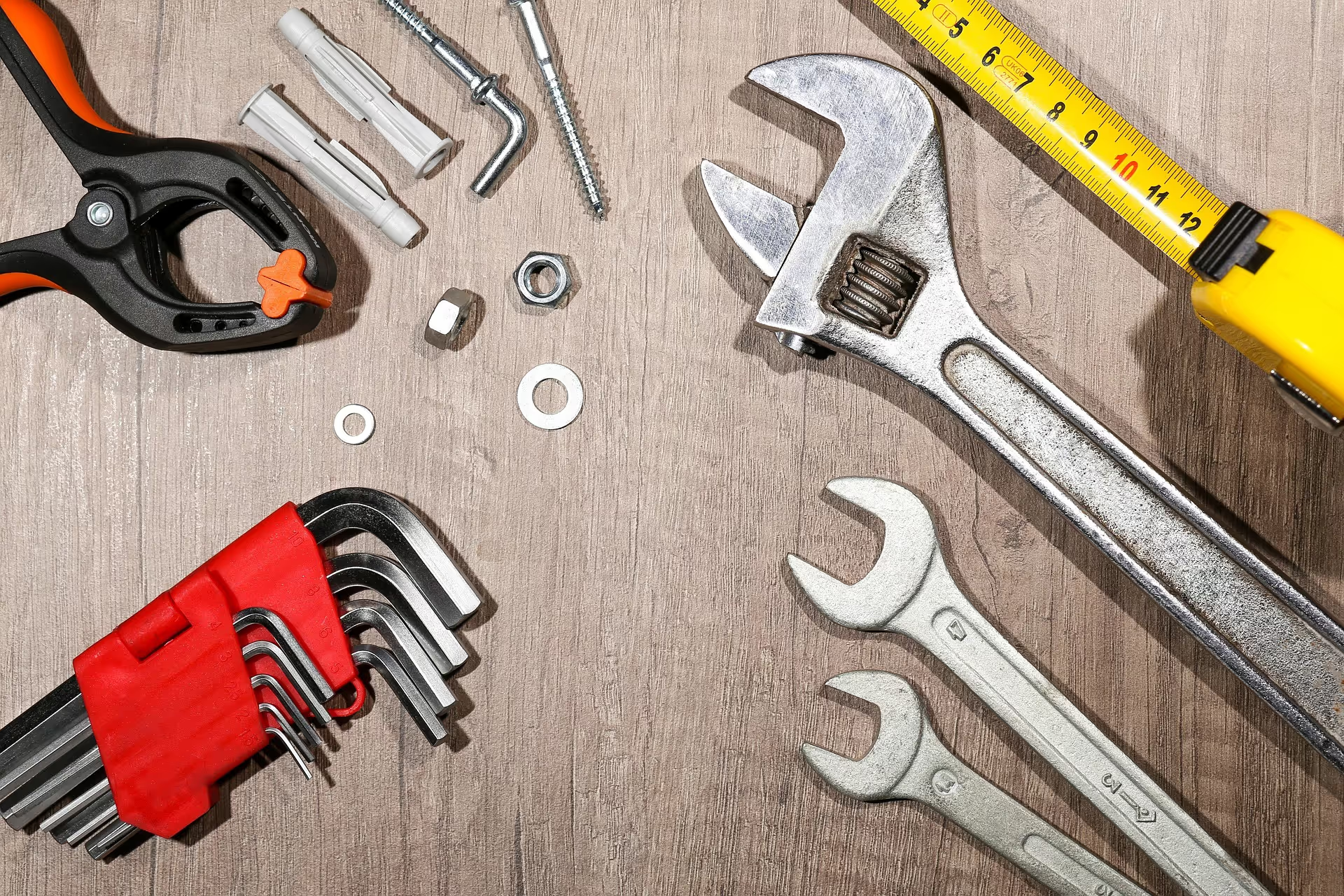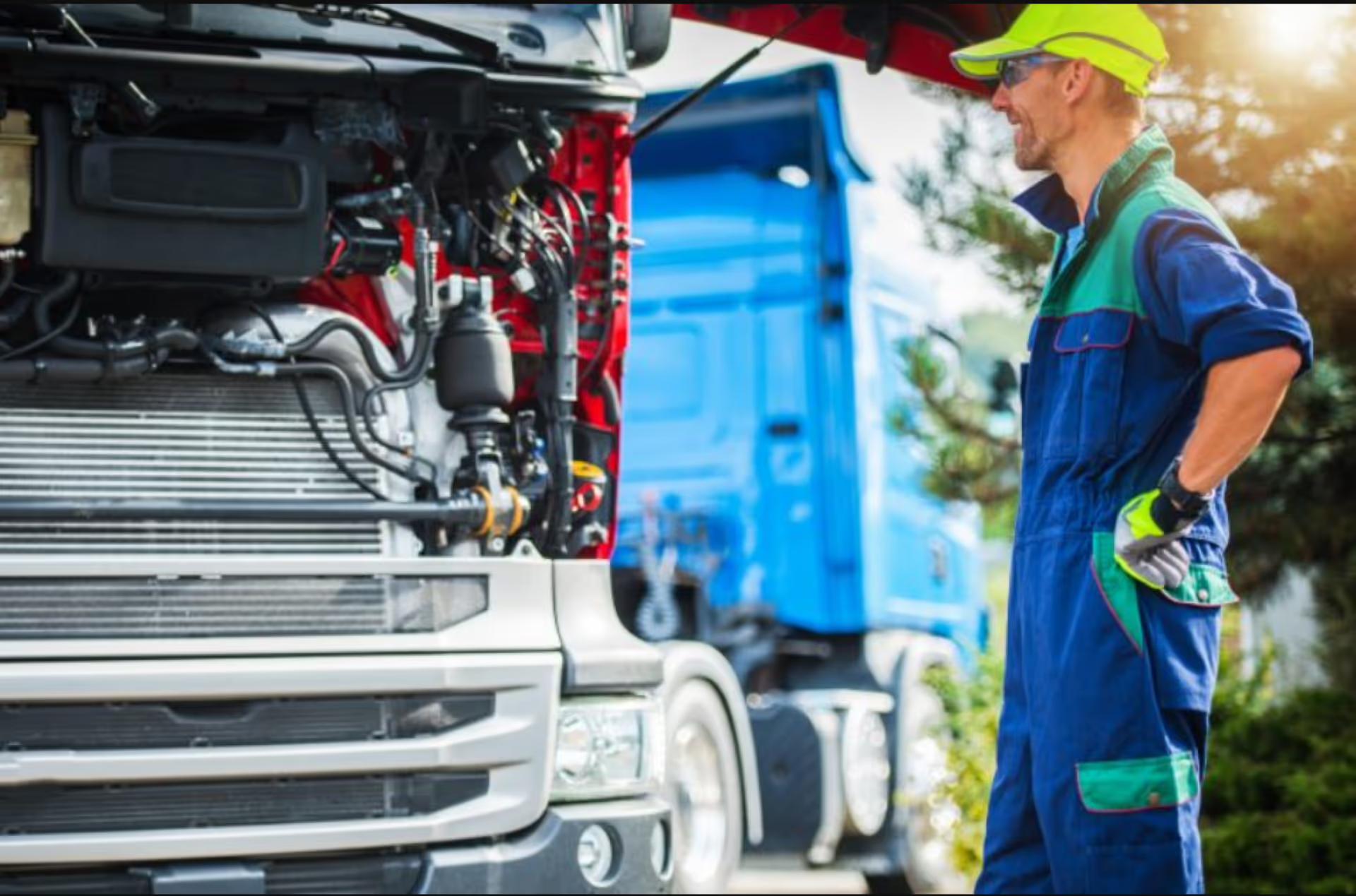
Running a mobile mechanic business takes more than skill and dedication, you need the right tools to succeed. Whether you’re already offering mobile truck repair services or planning to launch your own mobile heavy-duty repair business, having the essential tools for mobile mechanics is key.
The right equipment will help you work faster, stay safe, and build trust with your clients. From saving time on tough repairs to ensuring top-quality service, your toolkit is the backbone of your success.
In this article, we’ll cover the must-have automotive tools for your mobile mechanic business and explain why they matter.
Let’s dive in.
Why Having the Right Tools for Your Mobile Mechanic Business Matters
As a professional who wants to work as a mobile mechanic, your tools are your business. The right gear makes every job quicker, keeps your customers happy, and helps you earn a reputation people can trust
Before you hit the road as a mobile heavy-duty mechanic, it’s important to understand why the right tools matter. Having the right gears will help you;
- Be accurate. Some sensitive parts in a semi-truck require high levels of accuracy when repairing or maintaining them. The right auto-repair tools will help you be accurate and effective while servicing your client’s vehicle.
- Increase your output. Quality and effective tools will speed up and make your work easier. For example, you can easily open and close when repairing, replacing, or cleaning the faulty parts of a semi-truck. This will help you attend to various clients and handle their numerous tasks, increasing your income.
- Portray your professionalism. The first thing your clients will note before you start operating on their vehicles is the set of tools you possess. The right and quality tools will make you look professional and earn your customers' trust.
- Promote your safety. Self-care should always be your priority. Safety tools like a protective jacket and eyewear protect you from accidental injuries while operating your client’s vehicle.
- Retain customers. Quality and reliable tools will improve the efficiency of your work and enhance your workflow. Clients will love it if you deliver timely, quality services. They will trust you and return to you when their vehicles have issues. Customer retention and continuous workflow will stabilize your business and help you grow your brand as a mobile technician.
- Earn new customers. Your current customers are satisfied with your services. What else will they do? They will give you referrals and even leave an excellent online review.
Maintaining a strong online reputation will attract fleet managers, truck owners, and drivers. This will help your business grow, attract more customers, and boost your online credibility and authority.
Essential Tools You Need to Run a Successful Mobile Mechanic Repair Business
You need a well-equipped toolkit to keep your mobile mechanic business running smoothly. The following essential tools will help you handle repairs efficiently and ensure safety, reliability, and customer satisfaction every step of the way
1. Wrenches
A wrench is a hand tool that helps you tighten or loosen nuts and bolts quickly.
With different sizes and types of nuts and bolts present in a semi-trailer, you need to include the combination, ratcheting, and adjustable wrenches, among others, in your toolbox.
Let's look at these types of wrenches and the tasks each will help you perform.
Adjustable wrench. Also known as a crescent wrench, an adjustable wrench has a movable jaw that you can easily adjust to fit the size of your bolt or nut.
With its flexibility to be adjusted, the adjustable wrench will enable you to tighten and loosen nuts and bolts of different sizes. With this type of wrench, you can handle various repair jobs.
Torque wrenches. A torque wrench is a safety tool that measures the torque or force applied to a fastener when tightening nuts to ensure they meet the manufacturer’s recommendation.
The tool will help you ensure that the bolts and nuts in your client’s truck, especially those in sensitive areas such as the engine, brake, suspension, and transmission system, are well-tightened to the required torque.
Combination wrenches. The combination wrench is a hand tool with a jaw on one end and a box on the other side. This tool is available in different sizes and shapes to help you loosen and fasten hexagonal or square-shaped nuts and bolts.
Additionally, the combination wrench hand tool allows you to handle nuts and bolts in narrow spaces, making it an essential tool to include in your toolbox.
Pipe wrenches. As the name suggests, a pipe wrench will grip, loosen, or tighten pipes in the plumbing and automotive industry. Its jaw is adjustable to fit different sizes of pipes, making it ideal for handling repairs and replacements related to the exhaust and HVAC system
If your specialty is repairing and maintaining automotive HVAC or exhaust systems, this tool should be in your toolbox.
Ratcheting wrenches. Also known as socket wrench, this type of tool is fit when loosening and tightening tools in a confined space. Its ability to rotate in one direction will help you open and loosen fittings in areas where other wrenches cannot operate.
2. Pliers
A plier is another essential repair equipment for a mobile heavy-duty mechanic. With pliers, you can twist, grip, and cut wires, remove and install stubborn clamps and hoses, and more.
The pliers come in different sizes and shapes, and they will help you perform various tasks effectively while operating a client’s vehicle.
They include;
A needle nose pliers. A needle nose pliers is long with slender jaws that enable it to reach narrow areas within a vehicle. With this type of pliers, you can easily loosen and tighten screws in tight places and grasp objects accurately.
Vise grips. Also known as locking pliers, this type of equipment has a locking device that will enable you to grasp and hold a part in place while drilling or cutting an object.
A vise grip will enable you to securely hold an object in place while attending to other tasks.
Slip-joint pliers. Slip-joint pliers are indispensable tools that you will want to take advantage of, and therefore, they should be included in your pliers toolkit. They have a movable pivot joint that will help you handle nuts and bolts of different sizes and shapes.
With the slip-joint pliers, you can grasp and remove objects, bend parts, and tighten and loosen nuts and bolts.
Wire cutters. Also known as diagonal cutters, this plier has an angled jaw that helps you cut wires and cables accurately and at an angle.
Channel-lock pliers. Also known as a tongue-and-groove plier, the channel-lock plier has an adjustable jaw that can be adjusted to fit and hold nuts, fittings, and pipes of different sizes and shapes.
3. Socket Set
A socket set will help you in your automotive career as a mobile mechanic to handle your repairs and maintenance effectively and efficiently.
The socket set comes in different sizes and shapes to fit various nuts and bolts and streamline the fastening and loosening process.
Here are some types of socket sets available.
Glow plug sockets. The glow plug in a vehicle has a sensitive tip that releases a spark that completes the combustion process. While performing routine maintenance checks and repairs, you need a specialized socket to help you carefully remove and install the glow plug without damaging it.
Glow plug sockets exist in different shapes and sizes to fit different glow plugs in various vehicles.
It also comes with a rubber strap that firmly grips the spark plug during installation or replacement, preventing it from dropping into the engine compartment.
Impact sockets. When performing heavy-duty repairs, you need impact sockets that withstand high torque when loosening or tightening bolts and nuts.
The impact sockets will prevent the high torque from spreading and destroying other parts within a semi-truck.
Deep sockets. Deep sockets have a long handle, making them efficient for reaching and loosening or tightening nuts and bolts in tight places like in the engine bay or under the carriage.
Standard sockets. The standard socket has a hexagonal opening to fit the fastener heads to aid in loosening or tightening them. These sockets come in different sizes and shapes to fit the nuts and bolts in different vehicles.
Torx sockets. These sockets will install torx crews and bolts in the vehicle’s transmission, engine, and electrical systems. The torx bolts and screws are star-shaped and can only be handled using a torx socket.
If you specialize in fixing engines, electrical components, or transmission systems, your toolbox must include torx sockets.
4. Screwdrivers
Screwdrivers will help you quickly drive screws in and out of a part while repairing or maintaining a client’s truck.
Different screwdriver sizes and shapes enable you to operate on vehicles with different fasteners.
These screwdrivers are grouped into 3 groups;
Torx screwdrivers. This type of screwdriver has a six-start-shaped tip that will help you handle screws with a star-shaped head.
Flathead screwdrivers. The flathead screwdriver hand tool has a flat and narrow tip that will help you to drive in and out screws with a groove or single slot on the head.
Phillips screwdrivers. As the name suggests, the Phillips screwdriver will handle Phillips screws. This screwdriver has a pointed, cross-shaped tip for its effective performance.
5. Hammers and Mallets
As a professional semi-truck and trailer mechanic, a hammer or mallet helps you strike and shape objects that require force.
Depending on the part you need to repair, your toolset should include a ball-peen, rubber mallet, or dead-blow hammer to handle work precisely.
6. Power Tools
You wonder if you need power tools while running your mobile medium-duty repair business? To loosen and tighten large nuts and bolts, you will require high torque to drive the fasteners.
Without power tools, you will use a lot of energy and spend a lot of time handling a single task, lowering your output.
Since you are your boss, guarding against the time you spend on repairs and maintenance, you need powerful tools to make your work easy, faster, and more accurate.
These portable power tools are your go-to equipment to add to your must-have list. They include;
Cordless impact wrench. A cordless impact wrench is a tool powered by a battery and can easily be moved around making it suitable for a mobile diesel mechanic business. This tool produces a high torque that will hasten the tightening and loosening of nuts and bolts.
Cordless angle grinder. Powered by a battery, a cordless angle grinder helps you cut metals and grind or polish surfaces.
It can also access deep areas other grinders will fail to reach, making it efficient for its work.
Portable air compressors. An air compressor will produce a force to drive air tools like impact wrenches, spray guns, and pneumatic hammers.
As a mobile mechanic, a portable air compressor will help you maneuver around, meet your clients at their destinations, and handle all the work without the need to tow their vehicles to a garage.
Air ratchets. An air ratchet will help you access tight areas to loosen or tighten fasteners. These air ratchets come in different types: flex-head air ratchet, pistol grip air ratchet, and inline air ratchet.
Cordless drills. The cordless drills are powered by rechargeable batteries. This drill will help you to quickly drill holes and drive and fasten screws with less energy making your work more efficient.
7. Diagnostic Tools
As a professional mobile truck repair technician, you need an advanced diagnostic tool to examine your customer’s vehicle.
The tool will help you determine the exact cause of the problem and ensure the repairs are done right, saving you and your client time and money.
Here is a list of the diagnostic equipment you need for a successful mobile semi-truck repair job.
OBD-II scanner. You can connect an OBD-II scanner to a vehicle's computer system. The scanner accesses the diagnostic codes and can monitor and interpret them. This helps you find the real cause of the problem and more.
Multimeter. If you are an electrical truck technician, you need a multimeter to identify a short circuit or any other electrical problem in your client’s vehicle. A multimeter will check the circuits, battery voltage, sensors, current, frequency, resistance, and temperature to determine an issue you should fix.
Test lights. In addition to a multimeter, Test light tools may help you detect the presence of a voltage in a switch, fuse, or relay to diagnose an electrical issue and help you fix it.
Vacuum and pressure gauges. This diagnostic equipment will help you examine the pressure and vacuum in the engine to identify leaks and damages.
Engine-related issues are sometimes complicated. Diagnosing the exact cause will save you time and help you repair the problem accurately, saving your client from incurring extra costs on repair and downtime expenses.
8. Battery Chargers
While diagnosing and repairing semi-trucks, having a jumper starter cable is essential.
If a vehicle has trouble starting or a dead battery, you need jumper cables to jump-start the battery while diagnosing other issues or making necessary repairs.
9. Specialty Tools
Some vehicle parts require specialized equipment to repair and maintain.
Parts like the engine, suspension, brakes, steering, and suspension system require more specific tools to fix and handle them for accurate repairs and a successful mobile mechanic business.
Here is a list of some specific tools you will need while handling some parts in a vehicle.
Engine tools. For an accurate diagnosis, repair, and maintenance, you will require a cylinder leak-down tester to identify engine leaks, a timing light to test and adjust the ignition timing and ensure it works effectively, and a compression tester to diagnose and identify valve leaks and worn piston rings.
Suspension and steering equipment. If you are a suspension and steering system repair buddy, you need spring compressors, tie rod tools, and ball joint separators to help with repairs and replacement.
Transmission tools. For transmission repairs and maintenance, you need a fluid exchange tool to flush and replace the brake, transmission, and coolant fluids. Flushing and replacing used oils will keep your client’s vehicle healthy and improve its lifespan.
Brake tools. As a mobile truck technician specializing in brake repair and maintenance, having brake caliber tools will help you repair and replace brake calibers.
You also need a brake line tool to repair and replace brake lining and a brake bleeder to remove air bubbles from the brake lining to ensure they work effectively.
10. Safety Tools
While repairing your client’s big rig, you need mechanical protection equipment to keep yourself from accidents.
Ensure you have an eye shield, mechanical gloves, first aid kit, fire extinguisher, ear protection, and steel work boots on board.
11. Tool Storage Equipment
All the tools we have discussed require storage equipment to keep them safe from damage and for easy retrieval and transportation.
A toolbox will help you keep all the equipment in one place and protect it from loss and damage.
Moreover, you can also organize the tools according to their specialties for easy retrieval. Use a tool chest, peg board, or cabinet to manage all your mechanical equipment for smooth operation.
You also need a van or truck to transport the tools as you travel to meet your clients at their destinations and repair their vehicles.
12. Certificates and Permits of Operation
When encountering new customers, you need an ASE certificate to show that you are a certified auto technician with the right skills and qualifications to operate their vehicles.
You also need a permit to show that the local authorities allow you to operate your mobile mechanic auto repair business.
Ensure you carry all the relevant certificates and permits to operate smoothly.
Why Truckup Will Be a Good Deal for You
You will require a lot of capital to acquire and set up the tools and equipment needed to run your heavy-duty repair mechanic business.
Fortunately, Truckup is here to help. Truckup will assist you in acquiring a service truck equipped with a tool cabinet, air compressor, and service body for tool storage.
Moreover, if you have a service truck and the required tools and want to receive nearby mobile and roadside service jobs, sign up with Truckup and get started today.
Key Takeaways
Having quality tools is essential for success as a mobile mechanic. They create the first impression for clients before you diagnose or start working on their vehicles. Even with skills and experience, the right tools enable you to address various mechanical issues with precision, complete your work more quickly, and ultimately enhance customer satisfaction and retention.
“Being a mobile mechanic allows me to earn significantly more than I would in a traditional garage setting. The convenience I provide to customers, coupled with the lower overhead costs, means I can charge a premium for my services and keep a larger share of my earnings.”







